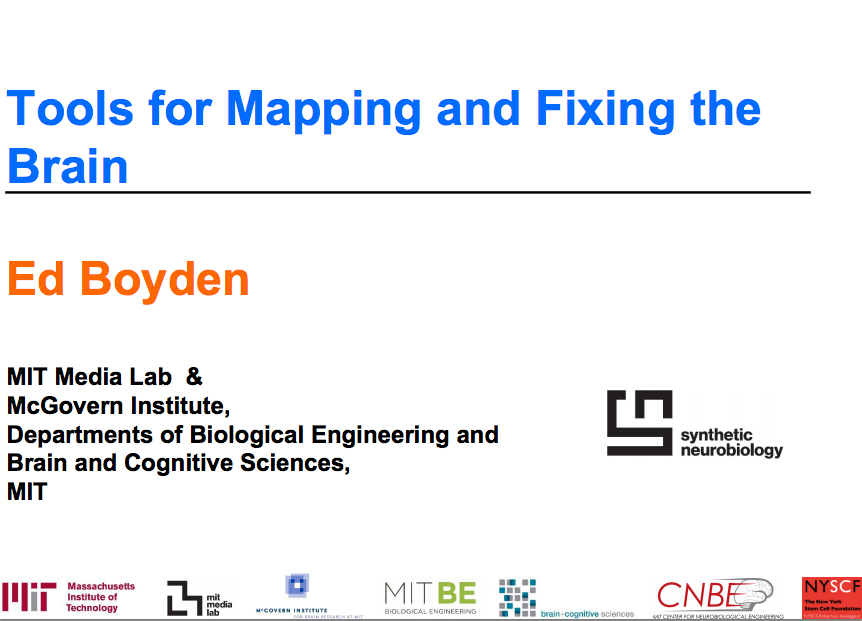Prof. Edward Boyden
Tools for mapping and fixing the brain

Prof. Edward Boyden (Associate Professor, Massachusetts Institute of Technology, USA) contributed significantly to the field of optogenetics - a breakthrough technology that allows the activation and silencing of neuronal cells using light. His laboratory also produced microfabricated neural interfaces that enable control and readout of neural activity in the living brain.
About speaker:
Prof. Edward Boyden is an Associate Professor of Biological Engineering and Brain and Cognitive Sciences, at the MIT Media Lab and the MIT McGovern Institute. As a Professor with the MIT Media Lab, he leads the Synthetic Neurobiology Group, which develops tools for analyzing and engineering the circuits of the brain. These technologies, created often in interdisciplinary collaborations, include 'optogenetic' tools, which enable the activation and silencing of neural circuit elements with light, 3-D microfabricated neural interfaces that enable control and readout of neural activity, and robotic methods for automatically recording intracellular neural activity and performing single-cell analyses in the living brain. He has launched an award-winning series of classes at MIT that teach principles of neuroengineering, starting with basic principles of how to control and observe neural functions, and culminating with strategies for launching companies in the nascent neurotechnology space. He also co-directs the MIT Center for Neurobiological Engineering, which aims to develop new tools to accelerate neuroscience progress.
Amongst other recognitions, he has received the Jacob Heskel Gabbay Award (2013), the Grete Lundbeck European "Brain" Prize, the largest brain research prize in the world (2013), the Perl/UNC Neuroscience Prize (2011), the A F Harvey Prize (2011), and the Society for Neuroscience Research Award for Innovation in Neuroscience (RAIN) Prize (2007). He has also received the NIH Director's Pioneer Award (2013), the NIH Director's Transformative Research Award (twice, 2012 and 2013), and the NIH Director's New Innovator Award (2007), as well as the New York Stem Cell Foundation-Robertson Investigator Award (2011) and the Paul Allen Distinguished Investigator Award in Neuroscience (2010). He was named to the World Economic Forum Young Scientist list (2013), the Wired Smart List "50 People Who Will Change the World" (2012), the Technology Review World's "Top 35 Innovators under Age 35" list (2006), and his work was included in Nature Methods "Method of the Year" in 2010.

 Download
Download


